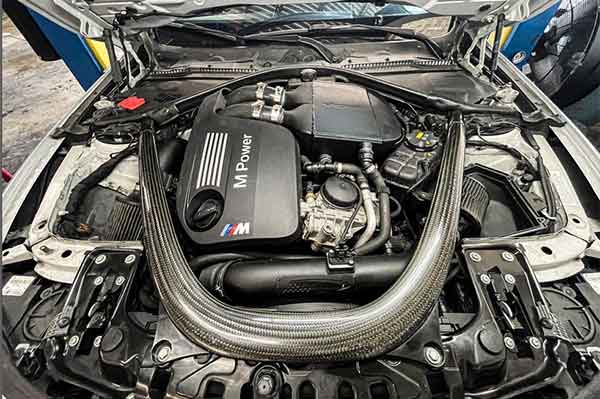Exploring the Efficiency Enhancements of the current BMW Engine Designs
Exploring the Efficiency Enhancements of the current BMW Engine Designs
Blog Article
Revealing the Intricacies of Next-Generation Power Units: a Deep Study Advanced Engine Styles and Developments
As we stand on the precipice of a brand-new age in transport, the intricacies of next-generation engine layouts bid us to explore the sophisticated technologies and advancements that guarantee to redefine the driving experience. Diving much deeper into the worlds of emission control, intelligent engine administration systems, and the horizon of power unit advancement, we discover ourselves on the cusp of a change that guarantees to reshape the landscape of mobility as we recognize it.
Evolution of Engine Materials

The shift in the direction of progressed engine materials has actually likewise allowed engineers to develop engines with higher power outcomes while keeping gas performance standards. For instance, using light-weight materials reduces the total weight of the engine, resulting in improved gas economic situation and lower exhausts. Additionally, developments in materials innovation have actually enabled much better thermal administration within engines, causing boosted reliability and long life.
Turbocharging and Supercharging Technologies
How do Turbocharging and Supercharging Technologies change engine performance and efficiency in modern-day cars? Supercharging and turbocharging are technologies that considerably improve engine efficiency by increasing the quantity of air consumption into the combustion chamber. Turbocharging achieves this by making use of a generator driven by exhaust gases to pressurize the consumption air, while turbo charging makes use of a belt- or chain-driven compressor to achieve the very same result.
These technologies enable smaller, much more fuel-efficient engines to create power equal to larger ones, referred to as downsizing. By forcing even more air right into the cylinders, turbocharging and turbo charging enhance combustion effectiveness, leading to enhanced horse power and torque result without a substantial increase in engine dimension. This results in better acceleration, pulling capacity, and general driving performance.
Furthermore, turbocharging and supercharging add to boosted gas performance by permitting the use of smaller engines that eat less gas under regular driving conditions - bmw engine. This mix of enhanced performance and performance has made turbocharging and supercharging integral components of several contemporary engine layouts
Emission Control and Environmental Impact
With boosting international issues regarding air high quality and environmental sustainability, the application of emission control technologies in vehicles plays an essential role in lowering unsafe toxins launched right into the ambience. Modern lorries are equipped with sophisticated emission control systems that aid decrease the environmental influence of automobile operations. Catalytic converters, for example, are designed to transform poisonous gases such as carbon monoxide gas, nitrogen oxides, and hydrocarbons into Get More Info less dangerous materials like co2 and water vapor.
Additionally, advancements in engine modern technology, such as the combination of exhaust gas recirculation systems and careful catalytic reduction, have actually substantially added to reducing emissions. These technologies function in tandem to maximize burning efficiency and reduce the launch of harmful contaminants into the air. Additionally, the growth of crossbreed and electric automobiles represents an essential action in the direction of decreasing the overall ecological footprint of the transport market.
Intelligent Engine Administration Solution

Moreover, these systems enable lorries to satisfy rigorous emissions criteria without jeopardizing performance, supplying an extra environmentally friendly driving experience. The combination of fabricated intelligence and artificial intelligence capacities in engine management systems remains to push the borders of what is possible, leading to additional improvements in performance, reliability, and overall vehicle efficiency. bmw engine. As auto innovation developments, smart engine management systems will play a crucial function in forming the future of transport towards a much more sustainable and reliable direction
Future Trends in Power Device Advancement
As smart engine management systems lead the means for boosted control and optimization in modern-day cars, future trends in power unit growth are poised to redefine the landscape of vehicle propulsion modern technologies. These alternative power sources supply improved performance and efficiency while straightening with stringent environmental guidelines.
Another substantial trend is the assimilation of sophisticated materials and manufacturing methods. Light-weight products such as carbon fiber and aluminum are being used to decrease overall car weight, boosting fuel efficiency and efficiency. Furthermore, advancements in 3D printing and additive production are allowing the production of complex engine components with greater precision and resilience.
In addition, expert system and artificial intelligence are playing a pop over here critical role in maximizing power system efficiency. These technologies permit real-time monitoring and adaptive control, resulting in a lot more reliable and reliable power distribution. In general, future fads in power device advancement are geared in the direction of efficiency, sustainability, and performance, driving the automotive sector in the direction of a new age of propulsion technologies.

Final Thought
In final thought, the innovations in engine materials, turbocharging, emission control, and intelligent management systems have actually paved the means for next-generation power devices. The intricate designs and technologies in modern engines showcase the ongoing development of automotive technology.
Discovering the dynamic innovations in engine products has actually been critical in improving the efficiency and effectiveness of contemporary engines. Over the years, the advancement of engine products has played a critical duty in pushing the boundaries of what engines can accomplish.The change in the direction of advanced engine materials has likewise go to website allowed designers to design engines with higher power results while keeping gas efficiency standards.The application of intelligent engine management systems in contemporary automobiles has changed the means engines are managed and maximized for efficiency and performance. By accumulating information in real-time and analyzing it with sophisticated formulas, smart engine administration systems can adjust to driving designs, ecological aspects, and engine health to make the most of power output while minimizing fuel consumption and emissions.
Report this page